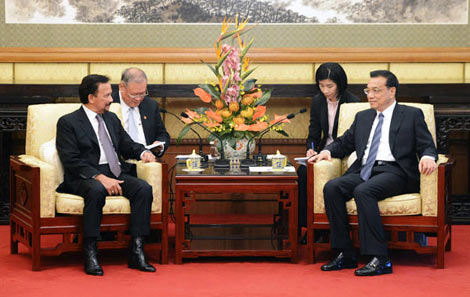
Zhang Qizi, assistant director of the Institute of Industrial Economics at the Chinese Academy of Social Sciences, said the targets being put forward by the authorities were sensible and reasonable, as China currently lacks large enterprises that can be fully competitive on a global scale, especially in manufacturing sectors.
He pointed out this is not the first time that government has proposed a more consolidated approach to industry in China.
"Authorities have been advocating higher industrial concentration for years - we've heard similar sounds every time there's been a downturn in some industrial sectors," he said.
"Yet, even after all these years, the same problems still exist in these sectors," he added.
Zhang suggested that simple administrative measures and policy support aren't enough to push forward the kind of industrial consolidation and technical upgrades being proposed.
"The key lies in creating healthy market competition in which only the best survive.
"But it is difficult for government to predict which will be the last ones standing, so it is a good idea not to focus solely on the development of a handful of companies," he said.
"Large companies, for instance, may have more resources to handle technical upgrades.
"Smaller and private companies are sometimes the main drivers of technical innovation, or solving industry problems, so there shouldn't be any bias toward State-owned of private businesses," he said.
He added many government-backed companies are facing increasing challenges in terms of competition internationally, because they have received government support. So there should be a fairer environment created to encourage competition, with lower industrial thresholds for private companies, as well as less protectionism by local authorities.
weitian@chinadaily.com.cn
Outbound M&A activity on the rise, survey says
Chinese M&As surge 37% in 2012
Private firms take lead in overseas M&As
 'Cat model' to dazzle Shanghai auto show 2013
'Cat model' to dazzle Shanghai auto show 2013
 Models at Tokyo modified car show
Models at Tokyo modified car show
 Shanghai Fashion Week focuses on domestic brands
Shanghai Fashion Week focuses on domestic brands
 Angel-dress models at Shandong auto show
Angel-dress models at Shandong auto show
 Safe and Sound
Safe and Sound
 Theater firms scramble for managers
Theater firms scramble for managers
 Premier pledges closer ties with Brunei
Premier pledges closer ties with Brunei
 Volkswagen's all-new GTI at New York auto show
Volkswagen's all-new GTI at New York auto show